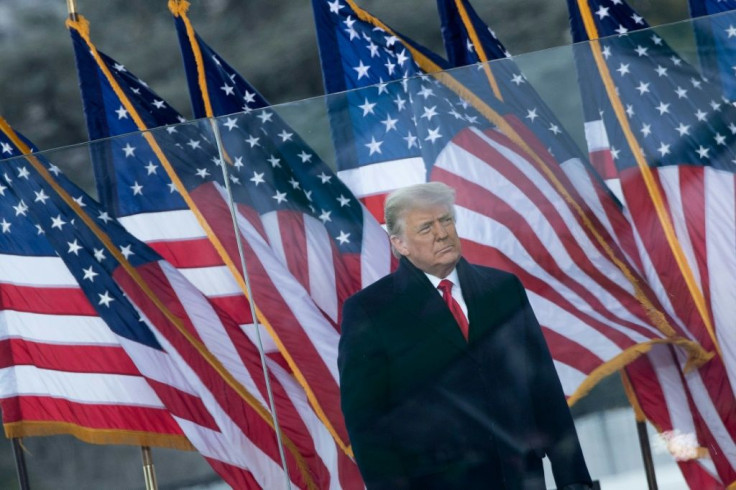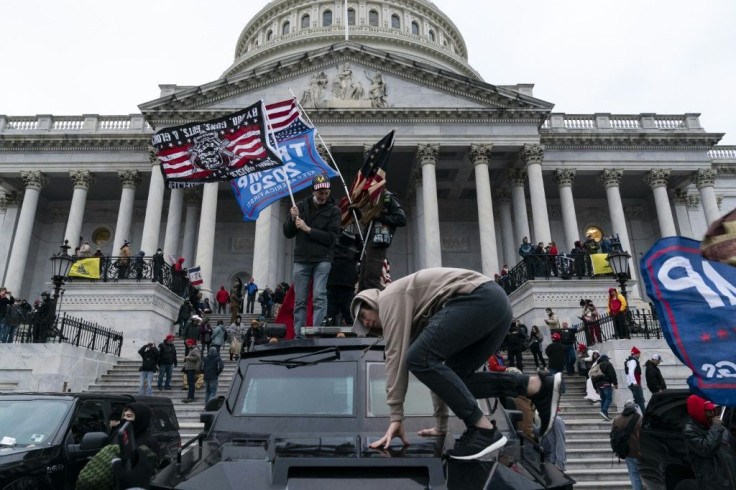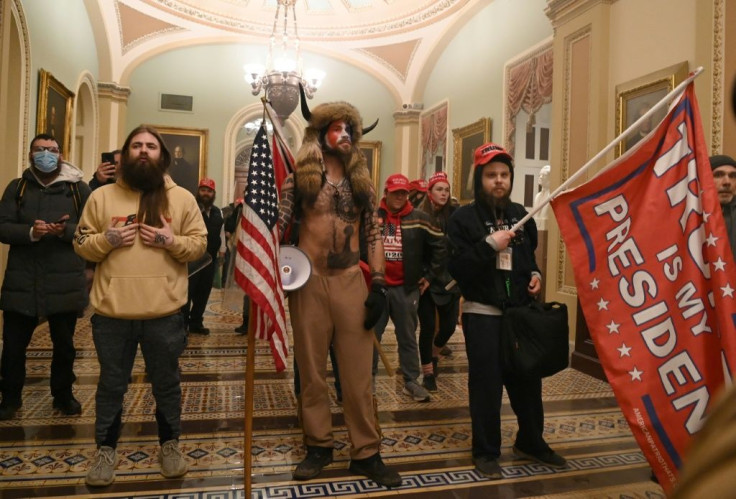Another Trial For The Ages: Senate To Judge Trump Over Riot
One year after his first impeachment, former president Donald Trump finds himself the subject of an unprecedented second trial beginning Tuesday in the Senate, whose members must determine whether he incited a deadly assault on the US Capitol.
The 100 senators will also step into controversial, uncharted territory when they sit in judgment of a president who is no longer in office, a deeply damaged political figure who remains a potent force in his party even without the power of the White House.
At the heart of the coming week's high-stakes proceedings is the January 6 melee, when several hundred pro-Trump rioters stormed Congress, fought police and sought to stop the ceremonial certification of Joe Biden's election victory.
The uprising, which some Democratic lawmakers say was an attempted coup by domestic terrorists, has been described as the most dangerous attack on American democracy since the 1860s Civil War.
It left members of Congress -- who were ruthlessly targeted by the insurrectionists -- so shaken, and the nation so enraged, that Democrats immediately began the process of impeaching Trump just two weeks from the end of his term.

On January 13 the House of Representatives indicted him for "incitement of insurrection," forever branding Trump a twice-impeached president. No other commander-in-chief has been so disgraced.
Yet no US president has ever been convicted in a court of impeachment, and the odds are that such a record will stand.
One of the main goals of Democrats driving the trial would be to ban Trump from holding federal office in the future, were they able to win a conviction.
The mob riot itself is beyond dispute. US networks covered the mayhem live, and thousands of self-incriminating photographs and video clips -- including of some rioters insisting Trump "wants us here" storming the Capitol -- made their way into the world's newspapers, websites and TV broadcasts.
Critics aver that Trump's role was such that he violated his oath of office by inciting his supporters to launch the attack.

The Republican billionaire and his allies, however, argue that the trial itself is unconstitutional, because the Senate can convict and remove from office a current president, but not a private citizen.
Such an approach would allow the defense team and Republican senators to avoid having to defend the fiery tweets and diatribes by Trump in the run up to the violence.
House Speaker Nancy Pelosi, who put together a team of nine Democrats to serve as impeachment managers prosecuting Trump, insisted the trial should go on, and that failing to convict him would damage American democracy.
"We'll see if it's going to be a Senate of courage or cowardice," Pelosi told reporters on Thursday.

Convicting Trump would require the vote of more than two-thirds of the senators, meaning 17 Republicans would need to break ranks and join all 50 Democrats, an unlikely stretch at this point.
But the former real estate mogul has plenty to lose in the trial, which will be beamed live to households nationwide.
Even though Trump retains a strong base of support, the riot has eroded his popularity -- not good for a 74-year-old who cherishes the idea of a fresh presidential run in 2024.
The impeachment managers do not intend to stick merely to bland legal theorizing in the debate.
In a pre-trial brief summarizing their arguments they set the tone, descriptively accusing Trump of "creating a powder keg, striking a match, and then seeking personal advantage from the ensuing havoc."
They also signalled their intention to use many of Trump's own public statements against him, including his January 6 pre-riot speech to a crowd of followers near the White House urging them to "show strength."
"You'll never take back our country with weakness," Trump said, urging them to "fight like hell."
In their own statement, defense lawyers focused on two points: that the trial is "moot" because Trump cannot be removed from an office he no longer holds, and that his rhetoric that cast doubt on the election results and his combustible January 6 remarks amounted to constitutionally protected free speech.
The parameters of the trial have yet to be set, and they will need the imprimatur of a Senate majority.
While Democrats have not signalled what evidence they will use, or who they might call as witnesses, such as US Capitol Police officers, their invitation to have Trump testify was shot down by the ex-president's team.
Democrats are reportedly not entertaining the idea of issuing a subpoena to compel his testimony.
Republicans, whose ranks are divided about the party's future direction, do not want to dwell on the divisive episode before them.
Many Democrats too are eager to move on, so Congress can pass Biden's legislative priorities like a massive coronavirus relief package.
© Copyright AFP 2024. All rights reserved.




















